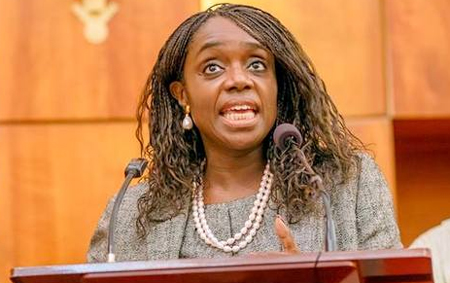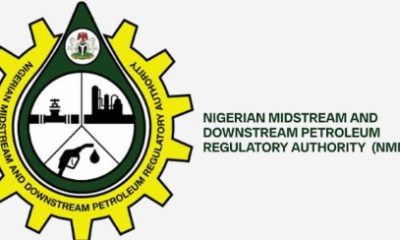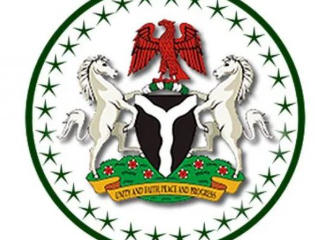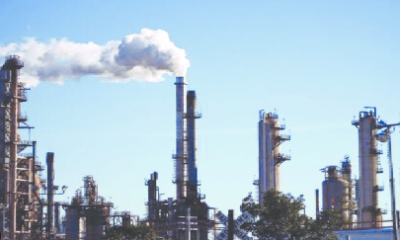Business
Economic crisis worsens as petroleum tax nears zero
Published
10 years agoon
By
Olu Emmanuel
• Budget 2016 under threat as revenue declines
• Analysts call for removal of subsidy
By DANLADI BATURE
THE Nigerian economy may be heading for a serious crisis as all indicators are showing warning signals with revenue from oil, the major foreign exchange earner at its lowest ebb, National Daily investigations have shown.
In fact, the dip in oil prices will significantly reduce the Federal Government’s take from the profits of oil and gas companies this year, raising further questions about the viability of the 2016 budget document.
Oil prices at less than $28 per barrel make production unprofitable for many smaller Nigerian companies that pump at a cost of $30 per barrel, and incur extra security costs to protect installations, analysts say.
Petroleum Profits Taxes (PPT) generated by Nigeria’s Federal Inland Revenue Service (FIRS) fell by 55 percent to N1.09 trillion in 2015 from N2.45 trillion collected in 2014 data from the tax agency shows.
With production cost of crude oil hovering at $25 per barrel and oil prices projected to trade below $20 per barrel by Standard Chartered, companies may cut production to avoid operating at a loss, leading to a lack of significant profit taxes to the Nigerian treasury in 2016.
Cyprian Nwuya a former Chairman, Institute of Chartered Accountants of Nigeria (ICAN) Lagos Mainland District, and partner at Agochukwu Okpalaoka & Co, an audit and tax consulting firm, says the fall of oil prices will significantly affect the petroleum profit tax for 2016.
“Since petroleum profit is based on the number of barrels exported, a dip in oil prices will reduce earnings of government and may even see oil and gas companies operating at a loss,” Nwuya said.
“Low oil prices will continue to prove a challenge for the Nigerian economy in 2016 even as the authorities have rightly budgeted relatively conservatively for oil,” Razia Khan, Chief Economist Africa, at Standard Chartered Bank, London, said in response to questions.
Oil accounts for two-thirds of the Federal Government’s revenue and about 90 percent of its foreign currency earnings.
The Federal Government, through the Federal Inland Revenue Service (FIRS) charges up to 85 percent of the assessable oil profits as taxes.
Nigeria’s 2016 budget proposes to spend N6.07 trillion in total with N2.64 trillion allocated for recurrent non-debt expenditure, N1.84 trillion for capital expenditure, and N1.47 trillion on debt service.
Already the budget with an embedded deficit of N2.2 trillion forecasts a further slide in oil income to N820 billion ($4.1 billion).
Also, the recent fall which pushed Nigerian equities to seven year lows with a N2.01 trillion loss in two weeks of this year has become an issue of concerns to the management of the nation’s capital market.
Consequently, Nigeria has become the latest country to join the bear club as its benchmark equities gauge, the Nigerian Stock Exchange All Share Index, has slumped more than 20 per cent since the start of 2016. The index has fallen a further 4.1 per cent as at the weekend to 22,550.83 points as brent dipped as low as $27.67 as one point at the weekend.
The development, coupled with the forex scarcity is making investors to hold hold off from pouring money back into the country until there is clarity over whether the currency will be devalued to compensate for the drop in oil revenue.
Bismarck Rewane, chief executive of Financial Derivatives Company, in his current FDC Bi-Monthly Economic and Business Update observed that the country is confronted by its steepest decline in oil revenue by 57.25% to $4.12bn, leaving a significant shortfall to fund the budget for 2016. The funding gap which translates into an amount of N2.2trn is 1.93% of GDP.
The countercyclical budget, he further said, is meant to stimulate the economy into the path of recovery, stressing that there is also the more profound issue of the external sector imbalance resulting from the acute shortage of foreign currency particularly US dollars from oil.
“This is happening at a time of a crisis of false expectations. The people had been conned into believing that the economy was in good shape by an outgoing administration that tried to paint an optimistic picture to a miserable electorate.
In layman’s language, we can say that most Nigerians should fasten their seat belts in anticipation of the rough tide ahead. The APC have not shown a proper understanding of economics and are still trying to figure out what the problem is. It has run out of time, because the honeymoon is over. Now the government has to re-ignite the economy to life and simultaneously convert economic wealth into economic well being for the people.
Therefore, the key decisions that will put the economy into a path of general dynamic equilibrium requires for the reduction or possible elimination of subsidies. This will reduce distortions, increase government revenue whilst empowering the government to fund the social safety net for the poor and underprivileged. The Federal government is embarking on an ambitious fiscal programme increasing its spending by 25% at a time when revenues are sharply lower. It is to make three critical decisions.”
The top most economist believes that part of the solutions lies with the removal of subsidy.”The removal of subsidies, which will reduce expenditure by N1trn or 25% of the previous budget. It will automatically increase available revenue for sharing by the same amount for the states of the federation. This singular and important decision will not only change the economic destiny of Nigeria but also reduce its import bill by over 20% and allow the Naira some breathing space.
What is happening is that Government has refused to accept that market economics works in African countries. That economic re-form is not incompatible with patriotism. The fundamental misconception that a strong currency is synonymous with a strong economy is defining the national economic narrative. Therefore, we see a Central Bank that is attempting to defend a currency at a value which is unsustainable. It therefore appears to send panic and frantic signals into a market that is extremely nervous.”
You may like


NMDPRA – Nigerians spend N1.3tn on petrol in June amid soaring energy costs


NOGASA urges government intervention as Dangote refinery’s direct supply plan sparks industry fears


FG defends borrowing plan, claims 10 states involved


Nigeria sheds Top importer status as Dangote refinery transforms Africa’s fuel market


Kaduna women protest alleged KRPC chemical pollution, Demand action


NNPC Foundation donates 25,000 STEM textbooks and mini libraries to 25 secondary schools
Trending

 Health5 days ago
Health5 days agoDeclassified CIA memo explored concealing mind-control drugs in vaccines

 Entertainment6 days ago
Entertainment6 days agoSimi addresses resurfaced 2012 tweets amid online backlash

 Crime5 days ago
Crime5 days agoSenior police officers faces retirement after Disu’s appointment as acting IGP

 Education7 days ago
Education7 days agoPeter Obi urges JAMB to address registration challenges ahead of exams

 Health7 days ago
Health7 days agoNAFDAC issues alert on suspected revalidated SMA Gold infant formula

 Comments and Issues6 days ago
Comments and Issues6 days ago20 Critical Fixes to Save Nigeria’s Democracy from Electoral Fraud

 Football6 days ago
Football6 days agoMartínez ruled out of Everton clash with calf injury

 Latest6 days ago
Latest6 days agoICPC yet to respond to El-Rufai’s bail request as arraignment date looms

